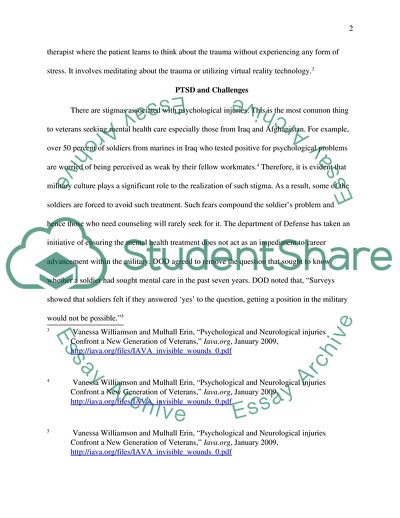Post Traumatic Stress Disorder as the Most Common Psychological Injury Essay Example | Topics and Well Written Essays - 1500 words. https://studentshare.org/psychology/1788989-ptsd-research-paper
Post Traumatic Stress Disorder As the Most Common Psychological Injury Essay Example | Topics and Well Written Essays - 1500 Words. https://studentshare.org/psychology/1788989-ptsd-research-paper.


